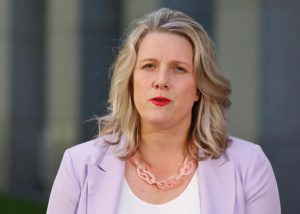Australia’s migration system set for shakeup
Australia’s immigration and humanitarian sectors are set for major overhauls after a series of major federal government announcements.
Home Affairs Minister Clare O’Neil has appointed a panel to carry out a review of Australia’s immigration systems and present recommendations by February 2023.
And she also reaffirmed a decision to scrap temporary protection visas but did not confirm a time frame for the move.
Meanwhile, the government has also announced a review of the Locally Engaged Employee (LEE) visa program for Afghans previously employed by the Australian Defence Force in Afghanistan, to also report by early 2023.
Former LEEs in Australia called for urgent action to save those at immediate risk in Afghanistan and NGO Médecins Sans Frontières has urged the government to extend the program to include Afghans who worked with foreign aid organisations.
Also, Immigration Minister Andrew Giles has announced that Myanmar nationals in Australia have been designated as a priority caseload for onshore humanitarian visas, in view of the humanitarian and security crisis in Myanmar.  And the ministers for foreign affairs and international development announced Australia will provide $135 million in humanitarian assistance in 2022-23 for vulnerable people in Myanmar and Bangladesh, including more than 919,000 Rohingya refugees and their host communities in Bangladesh.
And the ministers for foreign affairs and international development announced Australia will provide $135 million in humanitarian assistance in 2022-23 for vulnerable people in Myanmar and Bangladesh, including more than 919,000 Rohingya refugees and their host communities in Bangladesh.
As the cascading announcements arrived, Minister O’Neil blamed the previous government for the ‘Byzantine mess’ in immigration processing, citing a backlog of one million unprocessed visas when Labor took office.
She also referred to recent reports that allege ‘systemic abuse’ of the visa system, saying.
“We’ve got to make sure, number one, that we address the issues around criminality that are being alleged here by the media at the moment,” Ms O’Neil told the ABC.
“It’s absolutely clear to me that there are systemic abuses of the system occurring at the moment,” she said.
Visa issues are also a priority for the government.
“We have a number of people living in Australia on temporary protection visas who have been here for more than a decade. We are working through it slowly and carefully,” Ms O’Neil said.
She said visa processing times, sometimes taking two to three years need to be fixed.
“We spent almost the whole of the last decade in a big conversation about immigration about how to keep people out of our country,” Ms O’Neil said.
“We are in a global competition to attract the talent that we need for the future. With the US and Canada and New Zealand and all these other countries, they are rolling out the red carpets for the migrants they need.”
Earlier this year, the government increased the permanent migration cap from 160,000 to 195,000 per year, following pressure on workforce
Ms O’Neil said the review would be critical for the country’s workforce, describing the system as it stands as complex and expensive.
“This system is genuinely in a state of disrepair, it has no strategy,” she said.
“We’ve got enormous complexity in the system, literally hundreds of different visa categories and sub-categories.”
Former bureaucrat Martin Parkinson, labour migration legal expert Joanna Howe will lead the review of the immigration system, first flagged at the Jobs and Skills Summit in September.
While the review is designed to clean up the immigration system, it will also look to harness the opportunities skilled migration can provide to address worker shortages.
“This is a really important piece of the puzzle, we’ve got some of the best and brightest people around the world who want to come here and make Australia their homes,” Ms O’Neil said.
The government hopes migration could be used to boost workforces in the care sector, which is becoming increasingly strained.
“The migration reform is about looking at big economic transformations the country needs to make because we want to be a high skill, high wage economy, and the migration system can help us deliver that,” Ms O’Neil said.
She said the skilled occupation list isn’t working on an “evidence-based process”, and wouldn’t rule out scrapping it.












